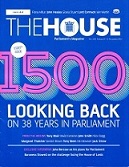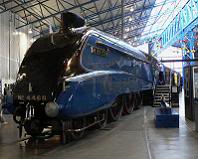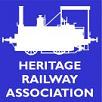EUROPEAN UNION SELECT COMMITTEE INTEROGATION OF MICHAEL GOVE
|
5th May 2020: Lord Faulkner of Worcester: Lord Faulkner of Worcester: Will you describe the practical steps the Government are taking to implement the Ireland/Northern Ireland protocol, particularly the customs procedures for goods entering Northern Ireland from Great Britain, providing for the necessary sanitary, phytosanitary controls and regulatory checks in respect of goods entering Northern Ireland from outside the EU? Michael Gove MP: Our aim is to make sure that we implement the protocol in a way that honours the reason it exists. The protocol is a reflection of the desire of the EU and UK to safeguard the gains that have been made since the Belfast Good Friday agreement of 1998. We all want to ensure that, 22 years on, the communities of Northern Ireland can benefit from the peace established, the prosperity that has grown and the relationships that exist across all our islands. That is the principal aim. One of the things we want to do is make sure that we can both guarantee unfettered access for goods from Northern Ireland to the rest of Great Britain and, at the same time, that the UK can play its part in helping the Republic of Ireland to maintain the integrity of the EU single market. You are right that one of the most important areas in that respect is live animals and products of animal origin and agri-food products where there will be a need for SPS checks, because Ireland will not be a single epidemiological zone; it will be a single zone for SPS requirements. We believe it is possible to have light-touch checks that can be conducted on the ferry—through transportation—which will ensure that all the requirements can be met, but it is a matter for the Withdrawal Agreement Joint Committee and the specialised committee to refine those. The other thing we want to do is to make sure that goods that go from the UK to Northern Ireland and then pass on to the Republic of Ireland are appropriately registered so that tariffs can be paid, if necessary, but it is important to stress that the amount of trade between GB and the Republic of Ireland that goes through Northern Ireland is small. We want to ensure that the checks we have to honour the need to support the protocol and the EU single market are not so onerous that they create financial and administrative burdens for businesses in Northern Ireland, which all of us want to see benefit from these arrangements. Lord Faulkner of Worcester: I think you have accepted that there will definitely be checks on food going from Britain to Northern Ireland, and indeed the other way. Can you say more about what those checks will consist of? What are you doing to enable businesses in Northern Ireland to understand them before they come into effect? Michael Gove MP: The Northern Ireland Office and the business department are engaging closely with businesses in Northern Ireland, because we want to make sure that this is less a matter of the draconian imposition of a new set of burdens and checks but more the effective implementation of the protocol in a way that goes with the grain of business. It is principally the case that to protect the single market checks will be required on products of animal origin going from GB to NI, but it is also the case that the protocol says that goods coming from Northern Ireland into the UK should enjoy unfettered access. It is important we recognise that there is a difference between goods going from Britain into Northern Ireland and then potentially into the Republic of Ireland, and goods coming from Northern Ireland into the rest of the UK, where we do not want to have any unnecessary impediment. Lord Faulkner of Worcester: You will well remember that when it looked as though we might have been leaving the EU without a withdrawal agreement a very significant public information campaign was ramped up to prepare the British people for that. Do you think there will be a similar public information campaign to help people in Northern Ireland understand the protocol before it comes into effect? Will there be a training programme to help small businesses understand what is expected of them? Michael Gove MP: Yes. We do believe that it will be necessary to support business and the wider population to understand. I do not think it will be quite on the scale of the campaign in the run-up to 31 October, because there has been more time and the changes required to implement the protocol would be fewer than those that might have been required to deal with a potential no-deal situation in the past, but the need for engagement and information is clear. A link to the complete session here |


































